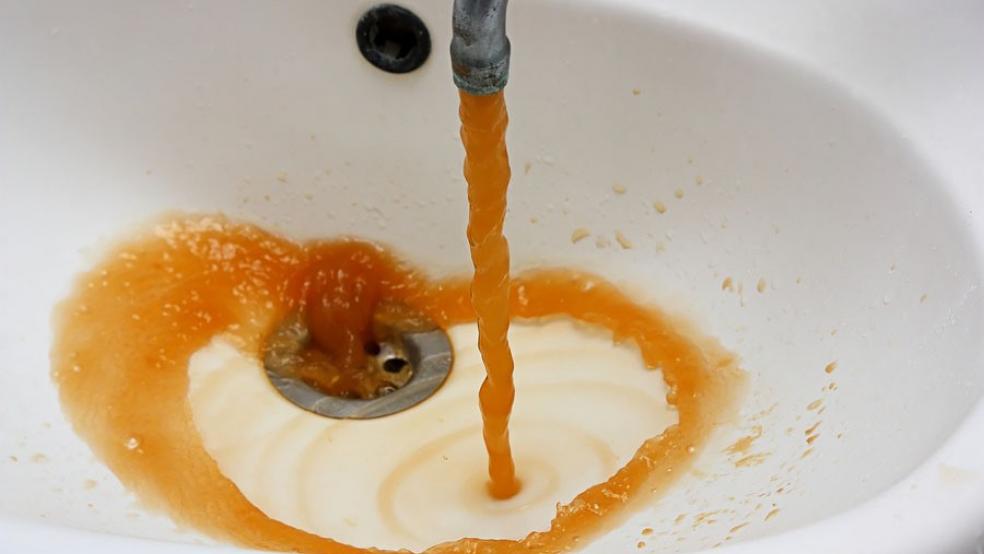Flint’s crisis over lead-contaminated drinking water has evolved into a national disgrace of sorts, with nearly 100,000 mostly poor and minority residents trapped in a public health nightmare while local, state and federal officials bicker over what to do.
An overwhelming 75 percent of Americans -- Republicans and Democrats alike – say the situation demands immediate action from Congress or the federal government, according to a new Morning Consult poll.
Related: Congress Fumbles Again on Funding for the Flint Water Crisis
Perennial partisan gridlock in the Senate has blocked action on a $600 million amendment to a major energy bill to help finance the replacement of Flint’s ancient and corroded water pipes. Michigan Democratic senators Debbie Stabenow and Gary C. Peters are desperately seeking the funds, but Energy and Natural Resources Committee Chair Lisa Murkowski of Alaska and other Republicans are resisting.
Meanwhile, city and state officials are bickering over how best to proceed in replacing Flint’s network of lead pipes and connections, and where the money will come from.
Republican Gov. Rick Snyder – who many blame for the crisis -- said his administration this week signed an agreement with a Flint-based engineering firm to “study the soundness of the city's water system” and launch a pilot program to replace 30 lead services lines into Flint homes by next month, according to the Detroit Free Press.
Flint’s new mayor, Karen Weaver, wants to accelerate the process and begin replacing pipe connections to homes as early as next week. She has urged the governor to pressure the state Legislature to move swiftly to appropriate money to fund the first phase of her $55 million “Fast Start lead pipe replacement plan.”
Related: How the Flint Drinking Water Crisis Became a Political Punching Bag
“We’re going to get this done — and done quickly — by any and every means necessary,” Weaver said in a statement on Wednesday. “The people of my city have simply run out of patience, and I have a moral obligation to act.”
But with so many officials pulling in different directions or talking past one another, it is far from clear how soon we can expect to see any meaningful action.
The biggest victims, of course, are the estimated 8,000 children under the age of six who may have been exposed to lead in Flint’s water during the past two years before the scandalous mismanagement of the municipal water system was revealed.
Many of those children may eventually suffer brain damage or developmental problems from tap water with lead levels ten times higher than those recommended by the Environmental Protection Agency. And given the limited physician and health care services likely to be made available to them, the long-term prognosis is not good, some experts say.
Related: Flint’s Drinking Water Crisis Just Got More Toxic with Legionnaire’s Disease
Many critics blame both the city and the state for gross negligence and disregard for the welfare of the residents. Not unexpectedly, Democratic presidential candidates Bernie Sanders and Hillary Rodham Clinton have made the Flint crisis a cause celebre and insist that more would have been done by now if Flint had been an affluent, majority white community. Sanders has called for Snyder’s resignation.
There is evidence that state, city and federal environmental and health officials did not respond urgently to the crisis. For instance, some of the emails released by the governor’s office in April cited a resident who complained in January 2015, a state nurse pooh-poohed the significance of her son’s elevated blood lead level, according to The New York Times. “It is just a few IQ points,” the nurse reportedly said. “It is not the end of the world.”
Meanwhile, residents of the once economically vibrant city that manufactured General Motors vehicles are struggling to get by without water out of the tap to drink and bathe in. A now common routine is to line up in the morning to pick up a supply of bottled water or filters, but that often means taking time off from work.
Some restaurants and shops have closed their doors because of the water crisis. And real estate values have plummeted – making it virtually impossible for many to sell their homes and escape Flint if they wanted to leave.
Related: Michigan governor to request federal aid in Flint water crisis
Adding insult to injury, Flint residents paid the highest water rates in America even as the water was being poisoned with lead from leaching pipes, according to a national study released Tuesday by the public interest group Food and Water Watch.
The survey of the 500 largest U.S. water systems was conducted last year. It found that, on average, Flint residents paid about $864 a year for water service. That was almost double the national average and about three-and-a-half times as much as residents of Detroit were paying, according to the Detroit Free Press.
Flint’s drinking water became contaminated with excessive lead after the city switched its water supply from Lake Huron (via the Detroit water system) to the heavily polluted and corroding Flint River in 2014. That switch was made to save money at a time when the deficit-ridden city was under state financial management.





